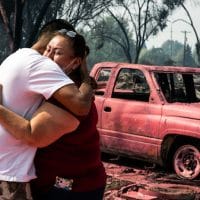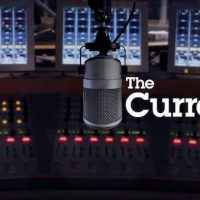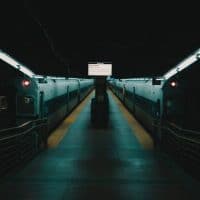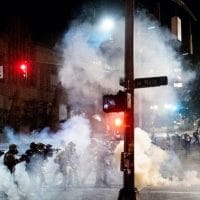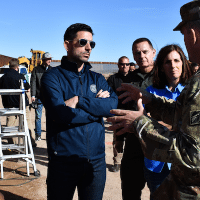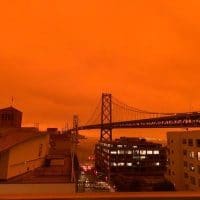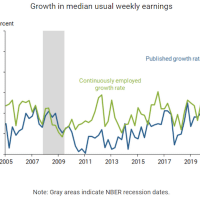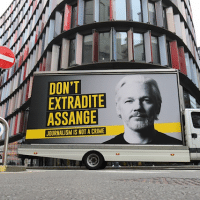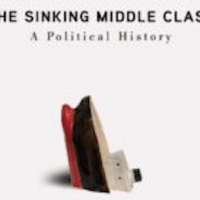-
The revolutionary answers of C.L.R. James
The Black Lives Matter movement across the U.S. against police violence and racist inequality is one of the most dynamic political developments in years.
-
Contemporary relevance of Marxian economics
My goal is to write a textbook that can fulfill two purposes: first, a stand-alone book for courses that are focused on Marxian economics or survey courses that have a section devoted to Marxian economics; second, it will also be useful as a companion text in a course that is based on reading all of or major selections from Karl Marx’s Capital.
-
1987: Ernest Mandel – On the potential of history
For a materialist conception of history, it is necessary to understand that the world cannot be consciously changed without understanding it correctly.
-
Oregon can’t fight wildfires because its helicopters were sent to Afghanistan
Many of Oregon’s largest firefighting aircraft are not available because the Department of Defense has sent them to Afghanistan to fight in the 20-year-old war.
-
The interconnectedness of everything-Capitalist contradictions and Marx’s metabolic rift theory
No person is an island. It takes a village. Circle of Life. We are stardust. Seven generations. These truisms reference connections between people and what we owe each other. Appealing to chaos theory, an action, no matter how small, dominoes around the world.
-
Eyewitness testimony: Death of Portland protester Michael Reinoehl was targeted assassination
An eyewitness has come forward to contradict official claims that Michael Reinoehl, a left-wing opponent of police violence who was killed in Lacey, Washington on September 3, died in a shootout with police.
-
CBC owes the people of Palestine an apology
Over 2,000 people have written to the CBC to condemn its deletion of the word “Palestine” and its subsequent apology for uttering it. Still, the broadcaster insists the word falls outside its standards.
-
A victory for students and parents: SPLC, allies win case blocking DeVos from diverting COVID-19 relief funds away from public schools
A federal court has sent a clear message to U.S. Education Secretary Betsy DeVos: You cannot use a national crisis as an excuse to advance your education privatization agenda by siphoning desperately needed COVID-19 relief money away from public schools.
-
The COVID-19 pandemic and the dual nature of science
Over two decades ago, Professor Richard Levins, one of the founders of Science for the People, described this phenomenon as the “dual nature” of science.(1) On one hand, scientific investigations discover truths about material reality that are independent of ideology or politics.
-
The insidious workings of the political ratchet
Democrats Are Joining Trump and DHS in Demonizing Anti-Fascists. Here’s Why.
-
DHS Head Chad Wolf adopts language of war in threats against Portland protesters
The phrase “all options on the table” is largely used in politics as a code phrase conveying the most extreme violence imaginable, without having to explicitly state it. Now it’s being used against American citizens.
-
Gov’t silent as climate change unfolds
From megafires, extreme heat waves, summer snow storms and hurricanes, millions across the United States are witnessing the effects of climate change first hand.
-
Michele Bachmann says “transgender Black Marxists” are trying to “overthrow the United States”
She says they’re going to start a Communist revolution to elect Joe Biden & bring about a global currency. Seriously.
-
Times remain hard, especially for low-wage workers
The current economic crisis has hit workers hard. Unemployment rates remain high, with total weekly initial claims for unemployment insurance benefits continuing to grow.
-
The NBA strike brings the counterinsurgency war on Black Liberation Movement to basketball
When NBA players threatened to disrupt business as usual the ruling class deployed perhaps its most effective weapon of counterinsurgency: Barack Obama.
-
Not just an orchard, not merely a field, we demand the whole World
When news of the revolution in the Tsar’s empire filtered into British-dominated India in 1917-1918, the reception was universal: if they could overthrow the Tsar, then we can overthrow the British Raj.
-
Wikileaks helped end secret U.S. killings, Assange extradition hearing is told
REVELATIONS published by Wikileaks helped to end a secret U.S. assassination programme and freed unlawfully detained prisoners from Guantanamo Bay, the Julian Assange extradition hearing was told today.
-
Nobel prize-winning economics of climate change is misleading and dangerous – here’s why
While climate scientists warn that climate change could be catastrophic, economists such as 2018 Nobel prize winner William Nordhaus assert that it will be nowhere near as damaging.
-
How the middle half lives
A Review of David Roedeger’s book The Sinking Middle Class: A Political History
-
U.S. govt-linked PR firm ran fake news networks for right-wing Latin American regimes
A major U.S. PR firm located just a few blocks from the White House has been caught running an industrial grade propaganda operation on social media.

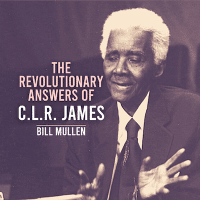
![I’ve just signed a contract with Polity Press to write a new book, “Marxian Economics: An Introduction.” The idea is to publish it in late 2021 or early 2022. - David F. Ruccio (Photo: [ht: adm])](https://mronline.org/wp-content/uploads/2020/09/exupl4jvcamiifh-copy-200x200.jpg)

